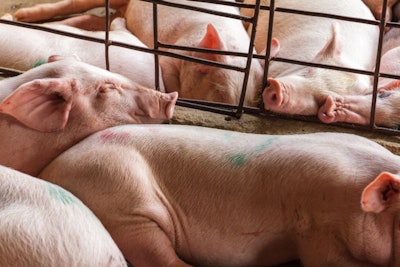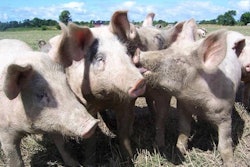
Feed additive suppliers offer latest research and innovations in swine disease mitigation and prevention
*** NOTE: Due to the ongoing spread of the Coronavirus (COVID-19) and out of an abundance of caution for the safety of our event attendees, sponsors, speakers and partners, we have decided to cancel Feed Strategy Conference Asia participation in the VICTAM and VIV Animal Health & Nutrition Asia 2020 event. We appreciate your understanding and support for these important industry events, and will continue to keep you informed on future developments. ****
African swine fever (ASF) has greatly impacted swine production and pork supplies in China and Southeast Asia over the last 18 months. While it and other disease challenges will continue to be an issue into 2020, feed additive suppliers and other industry stakeholders have diligently worked to provide reliable solutions and leading-edge research to help maintain animal health and productivity. The Feed Strategy Conference, “Feed additive solutions for pig disease treatment, prevention” aims to explore the latest swine disease mitigation strategies and related research at VICTAM Asia.
This year’s half-day event will focus on feed’s role in preventing and combating the spread of swine diseases. Here, speakers will address issues relevant to Southeast Asian animal feed nutritionists and producers, stressing the importance of nutrition, feed safety, hygiene and on-farm management to improve performance and health.
Feed & biosecurity
The 2018 outbreak of ASF, first in China and then through other parts of Asia, has resulted in an increased focus on viral disease survival and its spread in feed. This has brought about a greater understanding of the impact of feed additives on feed hygiene beyond the traditional focus of reducing the risk of bacterial pathogens. Dr. Brad Lawrence, technical manager of Novus International, Inc.’s North American pork business team, will examine recent feed additive developments for improved feed hygiene during his talk, “Feed biosecurity, quality and nutritional considerations for swine health management.” Lawrence will also discuss important nutritional considerations for improving pig performance and survival.
Dr. Andrew G. Yersin, senior vice president – worldwide quality assurance & monogastric technical service with Kemin Industries, Inc., will provide an overview of the current research on pathogen risk in feed and ingredients, as well as application of various chemical mitigants with activity against Senecavirus A (SVA), porcine reproductive and respiratory syndrome (PRRS), porcine epidemic diarrhea virus (PEDv) and African swine fever (ASF). His presentation, “Application of formaldehyde and/or organic acids for pathogen mitigation during feed manufacture,” will include studies conducted in both Biosafety Level 2 (BL2) and 3 (BL3) facilities in the United States, Poland and Vietnam. He will also examine safety and exposure data for feed mill workers and animal performance.
The presentation, “Feed as a fomite for swine viruses: Risk evaluation & the evidence base for effective intervention,” given by Anitox’s chief science officer Dr. Kurt Richardson, will review published research for assessing the risk contaminated feed and feed ingredients pose to the spread of porcine viruses, including ASF, and explores the latest in swine health research to offer effective intervention strategies.
Considerations for AGP-free production
The development of a pig’s gut microbiome plays a central role in immune function and digestive capacity — one critical not just in the early phases, but through its entire productive life. DuPont Industrial Biosciences swine innovation lead Dr. Victor G. Perez’s presentation, “Development of pig microbiome: Opportunities to promote health and performance,” will explore the development of the swine gut microbiome and its complex interaction with digestion, immune function, overall health and performance. It also will focus on diarrhea in nursery pigs, pointing to etiology and technological interventions to reduce production system problems encountered with the reduced use of in-feed antibiotics.
Perstorp Animal Nutrition’s business development manager Dr. Sofia Rengman will examine several ways producers can support pig gut health in antibiotic-free production in her talk, “Feed hygiene and gut health as focus areas to reach antibiotic-free production.” Here, she will focus on the use of tributyrins in diets and its effects on average daily gain and diarrhea scoring. She will also explore how heat treatment and the use of organic acids can be combined for pathogen reduction to keep feed safe.
Feeding management and biosecurity are critical in reducing non-therapeutic use of antibiotics. Beyond antibiotic removal, feed adaptation also encompasses restricting protein contents, providing proteins with good digestibility, feeding fibers and a proper balance of nutrients. In his presentation “Bioactive peptides in spray-dried plasma support reduction of antibiotics and zinc,” Dr. Lourens Heres, a veterinarian and global technical support manager with Darling Ingredients, will review recent studies examining the use of spray-dried plasma protein (SDPP) and its positive effects on immunity in piglets and other young animals. He will also discuss how it can improve feed quality and reduce diarrhea.

















